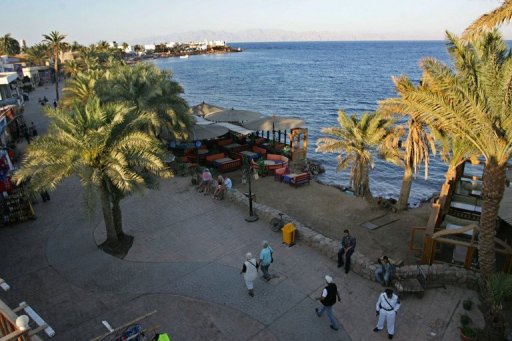Egyptian President Abdel Fattah Al-Sisi has accused Israel of committing a “systematic genocide” against Palestinians in Gaza, asserting that the war has shifted from political objectives or hostage negotiations to a deliberate campaign of “starvation and the liquidation of the Palestinian cause.” Speaking at a press conference, Al-Sisi said more than 5,000 aid trucks are stranded on the Egyptian side of the Rafah crossing, unable to enter due to Israel’s control over the Palestinian side.
Amid worsening humanitarian conditions, the Gaza Ministry of Health reported Tuesday that 87 Palestinians were killed and 644 injured in the past 24 hours, bringing the death toll since 7 October 2023, to 61,020, with 150,671 wounded.
Israeli Security Minister Yisrael Katz stated that the Israeli army would “professionally implement its policies” toward Gaza pending a cabinet decision. Israeli Channel 12 reported that Prime Minister Benjamin Netanyahu is increasingly inclined toward a full-scale offensive to seize the entire Gaza Strip. A senior Israeli official told Reuters that “increased use of force is now on the table” following the collapse of indirect ceasefire negotiations with Hamas.
The UN Relief and Works Agency for Palestine Refugees (UNRWA) said Israel permits only about 40 aid trucks into Gaza each day, far below the 600 trucks required to meet basic humanitarian needs—deepening the risk of famine and disease outbreaks.
Gaza’s Health Ministry also reported 95 cases of the rare neurological disorder Guillain-Barré Syndrome, including 45 children. It warned of a “rapid and alarming spread” linked to water contamination and malnutrition caused by the blockade, noting three recent deaths, among them two children.
On the ground, Al-Qassam Brigades and Islamic Jihad’s Al-Quds Brigades claimed attacks on Israeli military targets in the Morag axis between Rafah and Khan Younis, as well as in Gaza City’s Shuja’iyya neighbourhood.
Meanwhile, Israel’s security cabinet approved a new mechanism for the limited entry of goods into Gaza via vetted local traders under strict security protocols. Permitted goods will include basic foodstuffs, baby formula, fresh produce, and hygiene products, with payments processed exclusively via wire transfer and all shipments subject to comprehensive inspection.
US Secretary of State Marco Rubio held phone calls with his British and French counterparts to discuss the deepening crisis. In an official statement, Rubio expressed “deep concern” over the escalation and reaffirmed US efforts to push for a ceasefire.
Belgium’s Foreign Minister voiced support for the European Commission’s proposal to suspend Israel’s participation in EU research programmes. If Denmark secures a majority, this could mark the EU’s first tangible sanctions against Israel. The minister also criticised aid airdrops as “inadequate” and called for unimpeded ground access for relief deliveries.
Jan Egeland, Secretary-General of the Norwegian Refugee Council, told Al Jazeera that Israel is “violating international law daily” in Gaza and the West Bank. He urged an immediate ceasefire and the full reopening of border crossings to prevent famine, warning that Israel’s far-right government includes figures linked to extremist settler groups seeking to seize Palestinian land.
Norway’s Finance Minister announced that the country’s sovereign wealth fund will review its investments in Israeli companies involved in the war and West Bank occupation, stating: “We aim to avoid investing in companies complicit in the war in Gaza or the illegal occupation.”
Spain’s Foreign Minister José Manuel Albares also condemned any “illegal annexation” of Gaza or the West Bank, calling it a violation of international law that undermines the two-state solution.
In Egypt, authorities rejected a request by opposition parties to stage a protest outside the Israeli Embassy in Cairo on August 8. Madhet El-Zahad, head of the Socialist Popular Alliance Party, said the demonstration was intended as a peaceful show of solidarity with Gaza and did not address internal Egyptian issues. The request was denied by Cairo’s Emergency Affairs Court.
In Algeria, the Interior Ministry refused permission for 12 political parties to hold a nationwide march in support of Gaza, suggesting instead that events be held in enclosed venues. Citing a 1989 public assembly law, the ministry’s stance drew criticism from those who argue it contradicts Article 52 of the 2020 constitution, which explicitly guarantees the right to peaceful protest without prior authorisation.
The banned parties include the Movement of Society for Peace, the Workers’ Party, El Fajr El Jadid, Voice of the People, El Nahda Movement, Justice and Development Front, El Karama Party, Freedom and Justice Party, Good Governance Front, Union of Democratic and Social Forces, New Algeria Front, and the Hope for Algeria Party.
Meanwhile, Derya Türk-Nachbaur, a senior member of Germany’s Social Democratic Party, urged Berlin to join a European initiative led by Italy and Norway to evacuate and medically treat injured children from Gaza. She noted that Germany had already received Ukrainian children and could extend the same assistance to those suffering in Gaza.




